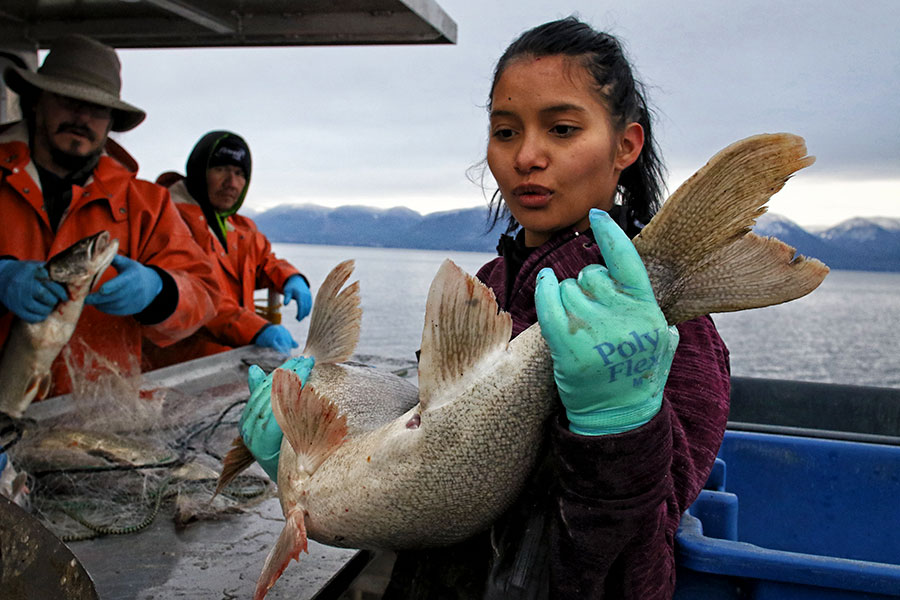BLUE BAY — Venture out on Flathead Lake in July or August and you’re likely to find dozens of boats full of locals and tourists drawn to the cool water on a warm summer afternoon. Motor into Woods Bay or along Wild Horse Island and you’ll encounter a nautical traffic jam of speedboats, pontoons, canoes and kayaks.
But three months later, come the frigid, gray days of November, and Flathead Lake is almost empty.
Almost.
Early on a Thursday morning, near the Blue Bay Campground, a group of Confederated Salish and Kootenai Tribes employees are busy loading up gear on a boat bound for the other side of Flathead Lake. The previous day, the crew had set gill nets to capture invasive lake trout and now they’re going to see what they caught.
In 2017, the CSKT Tribal Government incorporated a nonprofit tribally owned company dubbed Native Fish Keepers, Inc. to catch, process and sell invasive lake trout. There are approximately 1.5 million lake trout in Flathead Lake and the CSKT aims to remove about 143,000 annually. Besides gill netting, which began in 2014, the tribe organizes the popular Mack Days fishing derby in the spring and fall.
Prior to last year, most of the fish that were netted in the lake were given to local food banks, but in an effort to help cover the cost of netting the tribe started selling lake trout at local grocery stores.
This year, private individuals, Mack Days competitors and the tribe have caught approximately 100,000 lake trout, far short of the CSKT’s annual goal, said fisheries biologist Barry Hansen.
That’s why the CSKT’s fishermen, and fisherwomen, are still gearing up three days a week to head out and catch what they can. Hansen said the crews usually fish in the spring and fall when the temperatures are ideal for transporting fish and the lake is less crowded.
If everything goes according to plan, and the weather holds, they hope to keep fishing for a few more weeks.
For more information, visit nativefishkeepers.org.
